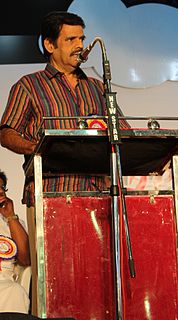A Quote by Kenneth Scott Latourette
Christianity emerged from the religion of Israel. Or rather, it has as its background a persistent strain in that religion. To that strain Christians have looked back, and rightly, as the preparation in history for their faith.
Related Quotes
Christians have always tended to transform the Christian Revelation into a Christian religion. Christianity is said to be a religion like any other or, conversely, some Christians try to show that it is a better religion than the others. People attempt to take possession of God. Theology claims to explain everything, including the being of God. People tend to transform Christianity into a religion because the Christian faith obviously places people in an extremely uncomfortable position that of freedom guided only by love and all in the context of God's radical demand that we be holy.
We can be deeply thankful that we live in a land where reason and religion are friends and allies in the cause of liberty, joined against the evils and dangers of the day. And you can be certain of this: Any believer in religious freedom, any person who has knelt in prayer to the Almighty, has a friend and ally in me. And so it is for hundreds of millions of our countrymen: we do not insist on a single strain of religion - rather, we welcome our nation's symphony of faith.
There are serious mistakes - among them the one saying that Jesus came as a messenger for other people other than the sons of Israel... Christianity is not a faith for people in Africa, Asia, Europe and the Americas. Other people who are not sons of Israel have nothing to do with that religion... It is a mistake that another religion exists alongside Islam. There is only one religion which is Islam after Mohammed... All those believers who do not follow Islam are losers.
Kant's aim was to develop a religion within the boundaries of mere reason (that is, reason unaided by special empirical revelation) and then to ask about existing ecclesiastical faith (especially about Christianity, and the Lutheran Christianity of his time and place) how this revealed faith must be interpreted if it is to be reconciled with reason, and even seen as a wider (though morally optional) extension of a religion of reason.
The incipient magician will confess his faith to a universal religion. He will find out that every religion has good points as well as bad ones. He will therefore keep the best of it for himself and ignore the weak points, which does not necessarily mean that he must profess a religion, but he shall express awe to each for of worship, for each religion has its proper principle of God, whether the point in question be Christianity, Buddhism, Islam or any other kind of religion.
What our view of the effectiveness of religion in history does at once make evident as to its nature is--first, its necessary distinction; second, its necessary supremacy. These characters though external have been so essential to its fruitfulness, as to justify the statement that without them religion is not religion. A merged religion and a negligible or subordinate religion are no religion.
RELIGION is one's opinion and belief in some ethical truth. To be a Christian is to have the religion of Christ, and so to be a believer of Mohammed is to be a Mohammedan but there are so many religions that every man seems to be a religion unto himself. No two persons think alike, even if they outwardly profess the same faith, so we have as many religions in Christianity as we have believers.
Patience has the meaning of testing-a thing drawn out and tested, drawn out to the last strand in a strain without breaking, and ending in sheer joy. The strain on a violin string when stretched to the uttermost gives it its strength; and the stronger the strain, the finer is the sound of our life for God, and He never strains more than we are able to bear.
You see, it's been our misfortune to have the wrong religion. Why didn't we have the religion of the Japanese, who regard sacrifice for the Fatherland as the highest good? The Mohammedan religion [Islam] too would have been more compatible to us than Christianity. Why did it have to be Christianity with its meekness and flabbiness?
Christianity is not a religion. Christianity is the proclamation of the end of religion, not of a new religion, or even of the best of all religions. If the cross is the sign of anything, it's the sign that God has gone out of the religion business and solved all of the world's problems without requiring a single human being to do a single religious thing. What the cross is actually a sign of is the fact that religion can't do a thing about the world's problems - that it never did work and it never will
The religion of art, like the religion of politics, was born from the ruins of Christianity. Art inherited from the old religion the power of consecrating things and endowing them with a sort of eternity; museums are our temples, and the objects displayed in them are beyond history. Politics--or more precisely, Revolution--co-opted the other function of religion: changing human beings and society. Art was an asceticism, a spiritual heroism; Revolution was the construction of a universal church.
Now that they talk about Islam as being a violent faith, when you look at the history of Christendom, the Crusades and the many wars of religion that were fought, the cruelty of Christians in burning what they believed to be witches and burning heretics, and then very recently they were responsible for the Holocaust... it was Christians.
Yet Buddhism is four hundred years older than Christianity, and if it's not a universal religion I don't know what a universal religion is. There's also a strong focus on selectionism and the notion that religion plays a functional role in the evolutionary process. But religion is dysfunctional all the time, as well as functional. It's not so simple.







































